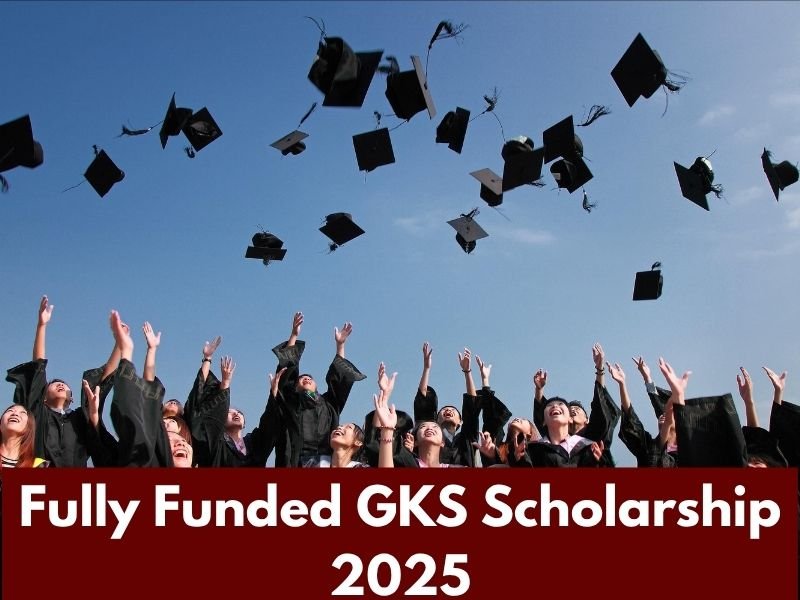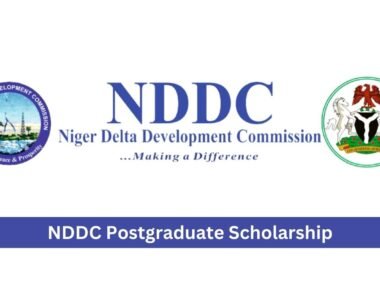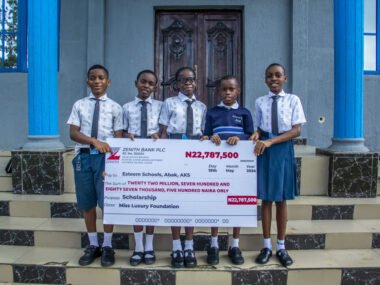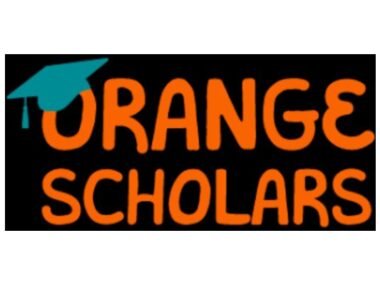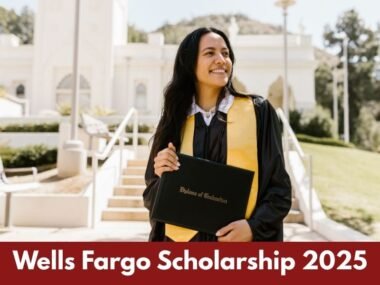The GKS Scholarship 2025 is more than just financial support—it’s a gateway to one of the most innovative, technologically advanced, and culturally rich countries in the world: South Korea. Offered by the Korean government through the National Institute for International Education (NIIED), this program opens the door for international students to study in Korea on a fully funded scholarship. Whether you are aiming for an undergraduate or graduate degree, the GKS Scholarship 2025 provides everything from tuition to airfare, monthly stipends, and language training.
If you’re looking for educational opportunities abroad that could change your life, the GKS Scholarship 2025 might be the right fit for you. This in-depth guide covers all the essential information about the scholarship, including its benefits, eligibility requirements, deadlines, application procedures, and insider tips to help you distinguish yourself.
What is the GKS Scholarship 2025?
The GKS Scholarship 2025—short for the Global Korea Scholarship—is a flagship initiative by the Korean government to attract talented students from all over the world. Administered by NIIED, this scholarship aims to foster international cooperation and mutual understanding through education. Each year, thousands of international students apply for a chance to pursue degrees in Korean universities, all under full financial support.
There are two main tracks for the GKS Scholarship 2025: one for undergraduate programs (GKS-U) and one for graduate programs (GKS-G). Both are fully funded, and both include extensive support ranging from flight tickets to living expenses and Korean language training. The GKS Scholarship 2025 goes beyond mere academics—it’s about cultural exchange, innovation, and creating future global leaders with a connection to Korea.
Who is Eligible for GKS Scholarship 2025?
Eligibility is a crucial factor in winning the GKS Scholarship 2025. The Korean government sets strict criteria to ensure the selected candidates are qualified and capable of adapting to the academic environment in Korea. To be considered, you must meet the following requirements.
First, you must not hold Korean citizenship and should be a citizen of a country that has diplomatic ties with Korea. Dual nationals, especially those with Korean citizenship, are not eligible unless they renounce their Korean nationality before applying for the GKS Scholarship 2025.
Second, the age requirement varies depending on the level of study. Undergraduate applicants must be under the age of 25 by March 1, 2025. For graduate applicants, the age limit is 40 years. These restrictions ensure that candidates have adequate time to complete their studies and contribute meaningfully afterward.
Third, academic qualifications play a key role. For undergraduate applicants, a high school diploma is required, while graduate candidates must have a bachelor’s or master’s degree, depending on the level they are applying for. Furthermore, your cumulative GPA should be 80% or higher on a 100-point scale, or you must be ranked in the top 20% of your class.
Fourth, language skills are considered, though not strictly required during the application stage. Proficiency in Korean, especially possession of the TOPIK certificate (Test of Proficiency in Korean), is a major advantage. If selected for the GKS Scholarship 2025, applicants must undergo one year of mandatory Korean language training unless they already hold a TOPIK Level 5 or 6 certificate.
Finally, all candidates must be in good health, both mentally and physically. Medical examinations are required, and applicants with serious conditions or infectious diseases may be disqualified from receiving the GKS Scholarship 2025.
Benefits of GKS Scholarship 2025
The benefits of the GKS Scholarship 2025 go far beyond tuition fees. As a fully funded scholarship, this program covers almost every expense an international student might incur during their time in Korea.
First and foremost, the GKS Scholarship 2025 offers a full tuition waiver for the duration of your program. Whether you’re pursuing a bachelor’s, master’s, or doctoral degree, you won’t have to worry about tuition payments. Additionally, selected students receive free round-trip airfare from their home country to Korea, ensuring no financial barrier in reaching their academic destination.
Another key benefit is the monthly living allowance. Undergraduates typically receive 900,000 KRW per month, while graduate students receive 1,000,000 KRW or more, depending on their program. This stipend helps cover accommodation, meals, transportation, and other daily expenses.
Language training is also included. Before starting their degree, students undergo a one-year intensive Korean language course at designated language institutes. This is crucial for academic success, especially if the student’s major is offered in Korean.
Medical insurance is provided throughout the entire period of the GKS Scholarship 2025. This ensures that students have access to healthcare and can focus on their studies without worry.
The program also includes settlement and completion grants. Students receive a one-time settlement allowance upon arrival in Korea and an additional grant upon completing their studies, especially if they achieve high proficiency in Korean (TOPIK Level 5 or 6).
In total, the GKS Scholarship 2025 is a comprehensive, all-inclusive scholarship designed to minimize financial stress while maximizing academic, personal, and cultural growth.
Selection Tracks and Quotas
The GKS Scholarship 2025 is available through two main tracks: the Embassy Track and the University Track. Understanding the difference is key to choosing the best path for your application.
The Embassy Track allows applicants to submit their documents to the Korean Embassy in their country. The embassy conducts a screening process and nominates successful candidates to NIIED. These candidates are then evaluated again before being matched with participating universities.
The University Track, on the other hand, involves applying directly to a designated Korean university. The university conducts its screening and recommends candidates to NIIED for final selection. This track is generally more straightforward, but can be more competitive depending on the university’s popularity and ranking.
Each track has its quota system, which may vary by country and level of study. For instance, in the undergraduate category, there are 367 available slots, with 87 reserved for Embassy Track applicants and 280 for University Track applicants. For graduate studies, the numbers are higher, with the final count usually announced in official NIIED documentation and embassy notices.
Keep in mind that some quotas are reserved for applicants from specific regions or countries, particularly those with developing economies. This reflects the Korean government’s aim to build stronger diplomatic and educational ties globally.
Choosing the right track is essential when applying for the GKS Scholarship 2025, and both options offer excellent opportunities for motivated and well-prepared candidates.
Important Dates & Deadlines
Timing is everything when it comes to applying for the GKS Scholarship 2025. Missing a single deadline could cost you the opportunity of a lifetime. That’s why it’s essential to track the key dates associated with both the undergraduate and graduate scholarship programs.
For the GKS Scholarship 2025 Graduate Program (GKS-G), the official announcement usually comes out between February and March. Embassies and universities will begin accepting applications soon after. Country-specific deadlines may vary, so it is important to check with the Korean embassy in your country or the university you’re applying to. As an example, the Korean Embassy in India set the graduate scholarship deadline for March 3, 2025. Final selections are typically announced in June.
For the GKS Scholarship 2025 Undergraduate Program (GKS-U), the application process typically begins in August or September. Embassy deadlines often fall between mid to late September. Universities participating in the university track may have slightly different timelines, usually extending into early October. Final results are announced in November or December, and selected candidates are expected to arrive in Korea by February or March the following year.
Because the GKS Scholarship 2025 is offered globally, each embassy or university has its internal calendar. Always consult the official websites—such as studyinkorea.go.kr—or reach out to your local Korean Embassy or the university’s international admissions office for exact timelines.
To avoid disappointment, start preparing your documents at least two months before the expected announcement to ensure you’re ready when the application window opens.
Step-by-Step Application Guide
The application process for the GKS Scholarship 2025 is rigorous but manageable if you follow a clear step-by-step strategy. Whether applying through the Embassy Track or University Track, organization is key.
Start by reviewing the official guidelines issued by NIIED and identifying whether you will apply via the Embassy Track or the University Track. Once that is decided, collect all the required documents. These include the application form, personal statement, study plan, letters of recommendation, academic transcripts, degree certificates, passport copy, and a medical assessment form.
If you’re applying through the Embassy Track, submit your application package to the Korean Embassy in your country. The embassy will conduct the first round of selections. If shortlisted, your documents will be forwarded to NIIED for a second round of evaluation. After that, you’ll be matched with up to three universities that you listed in your application. Those universities will then make their final decision.
If you’re applying through the University Track, submit your documents directly to the university of your choice. They will screen your application and forward the shortlisted candidates to NIIED. The final results will be announced by NIIED after their assessment.
Regardless of the track, be sure to provide notarized or apostilled versions of your certificates and transcripts. Failing to authenticate your documents may result in disqualification.
Make sure all documents are translated into either Korean or English. Always submit the required number of hard copies—usually one original and three photocopies—unless the guidelines specify otherwise.
The final step is to wait for the selection results. If you’re selected, you’ll begin preparations for your visa, language training, and travel to South Korea. You will receive a settlement allowance and additional guidance upon arrival.
FAQs About GKS Scholarship 2025
Is the GKS Scholarship 2025 fully funded?
Yes, it is a fully funded scholarship provided by the Korean government through NIIED. It covers tuition, airfare, living stipend, settlement allowance, Korean language training, and medical insurance.
Can I apply if I haven’t graduated yet?
Yes. Applicants who are expected to graduate before August 31, 2025 (undergraduate) or July 31, 2025 (graduate) may apply for the GKS Scholarship 2025, but they must submit an expected graduation certificate.
Is Korean language proficiency required to apply?
No. While TOPIK scores are not required at the time of application, they can strengthen your profile. All selected applicants must undergo one year of Korean language training unless they already possess TOPIK Level 5 or 6.
What if I don’t complete TOPIK Level 3 within one year of language training?
You may be disqualified from proceeding to your degree program unless your language institution grants an extension. The GKS Scholarship 2025 requires at least TOPIK Level 3 to advance.
Can I choose any university in Korea?
No. You must choose from the universities and departments listed in the official GKS Scholarship 2025 guidelines published by NIIED. Not all universities participate every year.
Do I need to submit original documents?
Yes. Original documents or verified copies are required. Some tracks may return them after evaluation, while others retain them. Always submit notarized or apostilled documents as instructed.
Can I work in Korea during my studies?
Yes, but only part-time jobs approved by the immigration office. Work is limited to a set number of hours per week, and students must apply for work permission separately.
What happens if I fail my language course or degree program?
Failing to meet the minimum academic or language standards can lead to the termination of your scholarship. The GKS Scholarship 2025 demands consistent academic performance and progress.
Conclusion
The GKS Scholarship 2025 offers one of the most generous and prestigious educational opportunities in the world. Backed by the Korean government, this fully funded scholarship allows students from around the globe to study in South Korea without financial constraints. From covering tuition and airfare to providing language training, housing stipends, and even settlement grants, the GKS Scholarship 2025 is a once-in-a-lifetime opportunity for aspiring global scholars.
By preparing early, staying organized, and meeting all eligibility requirements, you greatly increase your chances of winning this competitive award. Follow the guidelines, meet the deadlines, and make sure your application materials reflect your genuine interest in Korean culture and your chosen field of study.
Whether you’re drawn to Korea’s innovative education system, vibrant cultural scene, or global career prospects, the GKS Scholarship 2025 could be the perfect launching pad for your academic and professional future. Don’t wait—start preparing today, and take the first step toward an unforgettable international education experience.

